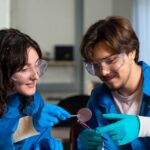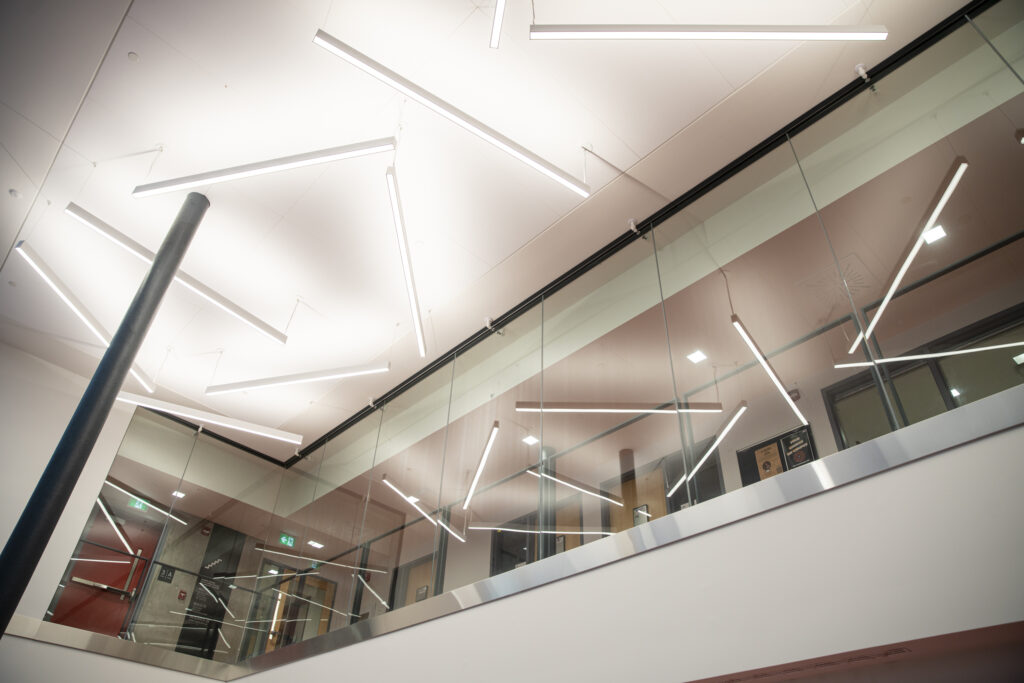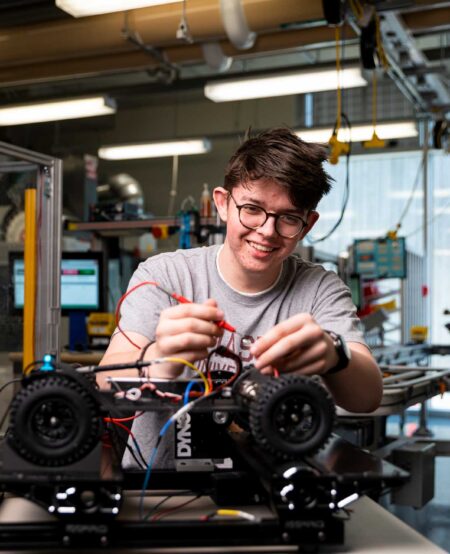- Length
- 5 years
- Degree
- Bachelor of Engineering & Society (Co-op Available)
- Program
- Engineering
- Options
Program highlights
In Engineering Physics, we create advanced materials, devices and systems based on our fundamental understanding of physics. Our faculty and students are pushing the envelope of new technologies to solve the grand challenges of the future such as energy supply, human health, and information and communications technologies.
Curriculum
Courses give students with a holistic understanding of technology’s societal impact, fostering research skills, communication, initiative, critical assessment, and interdisciplinary teamwork.
Innovation
Students develop micro/nanotechnology devices in advanced labs and gain hands-on experience with Canada’s most powerful university nuclear reactor.
Specializations
Four focus areas in the final years: Nuclear Engineering and Energy Systems, Nano- and Micro-Devices, Photonics Engineering, Biomedical Engineering.
Engineering and Society advantage
Core courses include:
- The Culture of Technology
- Case Studies in the History of Technology
- Preventive Engineering: Environmental Perspectives
- Social Control of Technology
In addition, three courses called Inquiry in an Engineering Context, develop skill at formulating questions, carrying out research and communicating findings. These courses help to examine the complex nature of issues like sustainable development and systems failure.
Admission requirements
Areas ofspecialization
The choice of specialization guides the choice of upper year technical electives.
The department’s final year laboratory course provides students with an opportunity to select advanced experiments that relate to their chosen specialization.For example, they may manufacture integrated circuits, fabricate solar cells, make a biosensor, or conduct experiments with the McMaster Nuclear Reactor. An overview of some of the topics included in the specialized streams is given below:
Nuclear Engineering and Energy Systems
- energy systems
- heat transfer and fluid mechanics
- alternate energy sources
- nuclear reactor physics and chain reactions
- nuclear reactor design and analysis
- radioactivity
- interactions of radiation with matter
Nano- and Micro-Devices
- electronics
- physics of semiconductors
- microelectronic devices
- integrated circuits
- device fabrication techniques
- microelectromechanical systems (MEMS)
- superconductivity
Photonics Engineering
- physics and applications of lasers
- optical instrumentation, optical sensors
- fibre optic communications systems
- electromagnetic theory
- physical optics
- semiconductor diode lasers
- biophotonics
Biomedical Engineering
- fabricate a biosensor
- build optical systems for cancer treatment
- use nanotechnology for disease detection

Careersand research
Career paths:
- Multidisciplinary Design Engineer
- Director of Business Development
- Manufacturing Engineer
- Controls Engineer
- Systems Engineer
- Business Analyst
- Entrepreneur
- Project Engineer
- Optical Engineer
Research areas:
- Nanotechnology, biological and chemical sensors, biomedical engineering, and solar electricity
- Laser applications, ultrafast laser fabrication, advanced displays, optical design and instrumentation, biophotonics, advanced microscopy
- Nuclear reactor engineering and safety, thermalhydraulics, nuclear waste management
Need moreinformation?
How to apply
Understand every step, from applying, to accepting your offer and joining us on campus!
Department of Engineering Physics
We’re creating advanced materials, devices and systems that push the envelope of new technologies and solve grand challenges facing our world.




